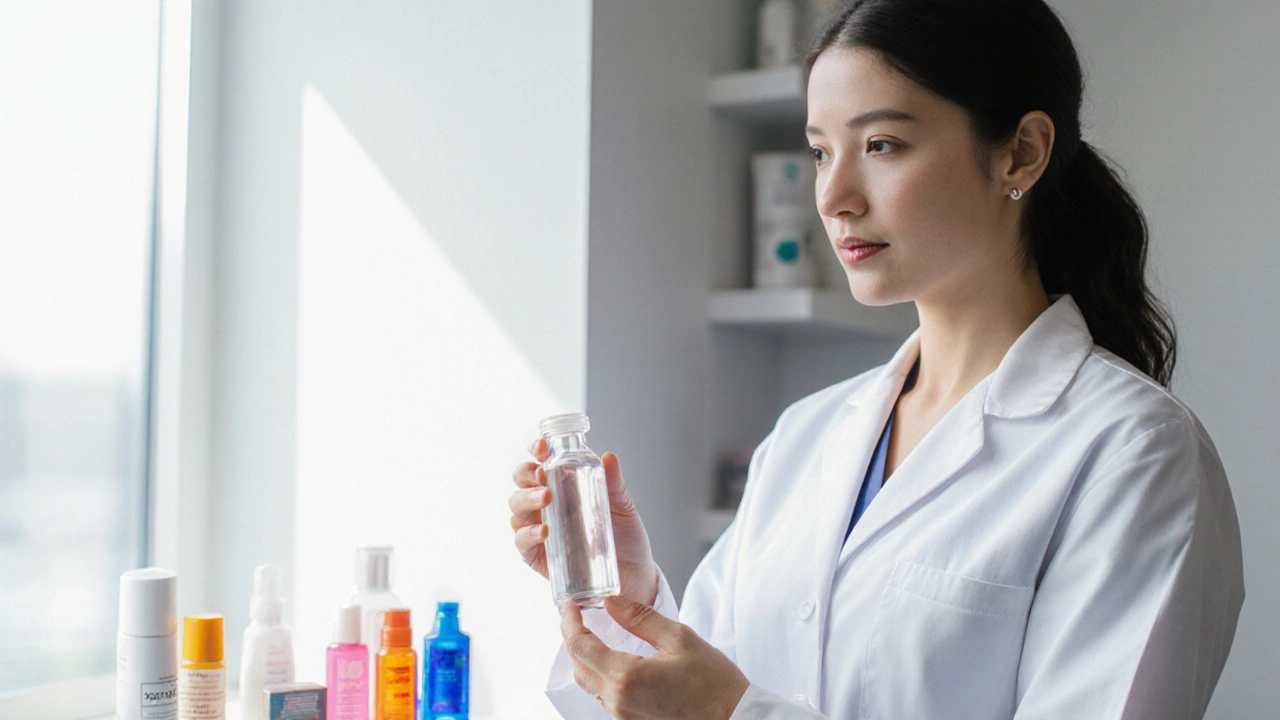Dermatologist Recommended Skincare: What to Trust and Why It Works
Ever wonder why some products carry the label “dermatologist recommended”? It’s not just a marketing buzzword. When a dermatologist backs a product, they’ve looked at the ingredients, tested it in real‑world conditions, and checked that it does what it claims without harming the skin. That kind of stamp of approval can cut through the noise of endless beauty ads and help you spend money on stuff that actually works.
In this guide we’ll break down how dermatologists pick their favorites, highlight a few must‑have items that made the cut this year, and give you easy ways to spot trustworthy recommendations when you shop online or in‑store.
How Dermatologists Choose Products
Dermatologists start with science. They look at clinical studies, ingredient safety profiles, and real‑patient outcomes. A product that contains broad‑spectrum SPF, proven retinoids, or stable vitamin C will usually get a nod because those ingredients have solid data backing their benefits. They also check for things that can irritate skin—like high fragrance levels or certain preservatives—especially for patients with acne, eczema, or rosacea.
Beyond ingredients, doctors consider how a product fits into a routine. A lightweight sunscreen that doesn’t leave a white cast is more likely to be recommended than a thick, greasy formula that people avoid using. They also value products that are cruelty‑free, non‑comedogenic, and formulated for different skin types. When you see “dermatologist recommended” on a label, think of it as a quick quality check that the product passed a lot of these filters.
Top Picks That Dermatologists Love in 2025
Here are a few items that consistently show up on dermatologist‑approved lists this year:
- Daily Broad‑Spectrum SPF 30‑50 – Sunscreen is the #1 anti‑aging move. Look for an oil‑free, water‑resistant formula that you can wear under makeup. Applying about a nickel‑sized amount for your face and a shot‑glass for your body does the trick.
- Retinol or Retinoid Serum – These vitamin A derivatives boost collagen and smooth fine lines. Start with a low concentration (0.25%–0.5%) and use it at night to avoid sun sensitivity.
- Niacinamide Serum – This antioxidant calms redness, reduces pore size, and strengthens the skin barrier. It works for most skin types and plays well with other actives.
- Gentle Cleanser with Ceramides – A non‑stripping cleanser helps keep the skin barrier intact. Ceramides repair the “mortar” between skin cells, which is key for anyone dealing with dryness or eczema.
- Moisturizer with Hyaluronic Acid – Hyaluronic acid draws water into the skin, keeping it plump. Choose a formula that also contains glycerin or panthenol for extra hydration.
All of these products appear in our own post “What Is the #1 Thing for Anti‑Aging? Daily Sunscreen, Proven by Science” and the “Beginner Skin Care Routine” guide, where we break down the exact steps to use them. When you build a routine around these dermatologist‑approved basics, you’ll see clearer, smoother skin faster than trying the latest trend without any backing.
Finally, keep an eye on ingredient lists. If a product touts “clinically proven” but contains a long list of fragrances or alcohol, it probably won’t make the dermatologist cut. Stick to the simple, evidence‑based picks above, and you’ll save time, money, and a lot of skin frustration.
Ready to upgrade your routine? Start with a solid sunscreen, add a gentle retinoid, and layer in a calming niacinamide serum. Your skin will thank you, and you’ll finally know why those dermatologist recommended tags matter.
Is CeraVe Really Medical‑Grade? What the Facts Show
Discover whether CeraVe truly qualifies as medical‑grade skincare. Learn the meaning of the term, ingredient science, dermatologist backing, and how it stacks up against rivals.
Healthiest Moisturizers for Skin: Dermatologist-Approved Picks and Tips
Get the truth about the healthiest moisturizer for skin, what ingredients matter most, and tips to keep your skin truly happy and hydrated.
Why Do All Dermatologists Recommend CeraVe? The Real Reasons Behind the Hype
Ever wondered why every dermatologist seems obsessed with CeraVe? This article unpacks what makes CeraVe stand out in the endless sea of skincare brands. We’ll look at its real science, the ingredients that actually matter, and the myths versus reality. By the end, you’ll know if CeraVe deserves its cult status—and how to get the most out of it for your own skin.



 Hair Care
Hair Care